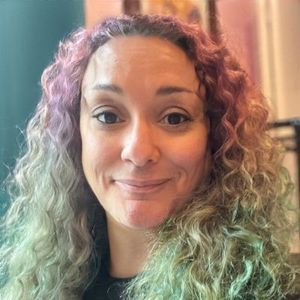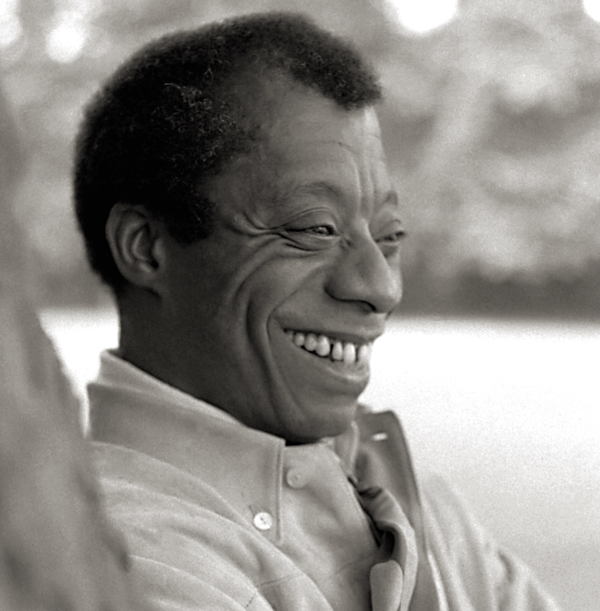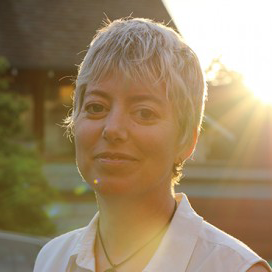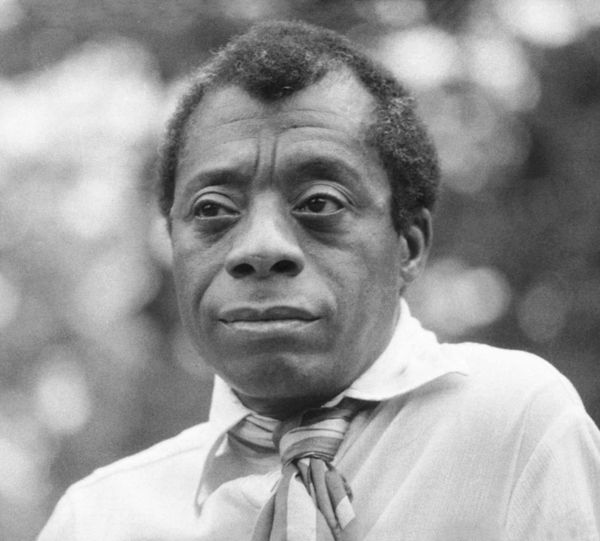“A Letter to My Nephew,” by James Baldwin, one of America’s foremost authors, activists, and playwrights, who addressed the themes of race, the political promise and peril of America, and the human condition, served as the inspiration for OHF Magazine, Issue No. 2: The Baldwin Issue. Terra Kestrel’s letter to her beloved niece, Jayla, emulates Baldwin’s, but it focuses on surviving and thriving in the face of the rigors common to living as a Black person in a predominantly white world.

Dear Jayla,
For five years I have considered writing this letter, and for five years I have let cowardice stay my hand. I keep hearing voices in my memory, voices I loved as a child and love still.
They tell me with hugs and reassurances that we are all the same. That there is no need to talk of these things. That, indeed, they only exist because we, by continuing to talk of them, breathe into them life. A Black childhood in a white family is an ocean of words you cling to for breath even as they pull you into their depths. I have avoided writing to you for five years because for ten times as many years I heeded those words, trying to believe them because they came from a place of love. Only after having children of my own did I even begin to see love’s cowardice. Your mother, I am given to understand, has seen this too, now, and faced it. That is a commendable feat. It is one thing for a white mother to adopt a Black child and remain unchanged and unchanging in a society which condemns the child. It is another experience wholly to, in the words of your mother, realize how many friends and family do not believe your child has a right to exist. To face the demon at his very gates. I have always loved your mother as the bird loves the summer sky. I hope facing that demon has not drained her summer’s golden warmth.
I have so long considered, but not taken action to write to you because I have for so long struggled to understand my own place, indeed to believe my own story. What offer could I bring to you that would contribute to the understanding of your life? What would I write? Indeed, who was I to assume I was even welcome, three thousand miles away? What right do I have insinuating myself into your presence?
But that question proved the force necessary to move my pen to paper, because we are, in some great and lonesome sense, the same in this. You are, as I was, a Black child in a white family, and you will therefore ever find yourself in what sociologists have begun to call White Space. (Do appreciate the horror of this term and its definition, that being, the spaces that are defined specifically by the lack of people who look like you.) In your life in these spaces, you will ever be an intrigue, a confusion, a misplacement. You will be an errant brush stroke on the canvas of an otherwise perfect painting, notable not for what you are, but for where you do not belong.
It is important that you realize now that this is not the truth.
Please believe that this is not the truth, lest you spend the next five times ten years questioning your right to insinuate yourself into the presence of those around you. It is an untruth thrust upon you which you must never believe, much less come to internalize. This world you know, your neighborhood, your house, your school, all that you have, for your entire life, come to be familiar with are, to you, simply “home.” They are truly yours and belong to you as much as your sense of humor and your beautiful curiosity and there is no reason you should think them otherwise. But there are so many who will think them otherwise. They will see your presence as an affront and will call you to question or condemn you outright. You will, Black woman in white spaces, ever be questioned. “May I help you?” “Do you work here?” “Where are you from?” “Are you looking for something?” The questions may be subtle and deniable, or they may be direct and aggressive, but they will come.
I hear voices in my childhood memory telling me that I exaggerate, that there is no truth to this, but they have not had the experience of living as a dark person in a white space. I have. I have answered the door of the business I started and own, only to have the person look me over and ask if there was “someone important” he could talk to. Perhaps, as the voices of my memory try to reassure me, he said this in innocence. But after a lifetime, as James Baldwin wrote, it begins to be almost impossible to distinguish a real from a fancied injury.
Sometimes the way you are questioned will even be loving. You will be told you are “not like them” and “different from what I expected.” You will be told you are “not really Black,” articulate, intelligent. You will be sought after to join groups and told that you are welcome. Such comments may seem complimentary but are, in fact, no less injurious than the condemnations. In a real and painful sense, the differentiation between the innocent and the malicious comment is meaningless. The malicious comment is intended to inform you that you are not welcome, but the innocent, even the inviting, comment has no less power to isolate you. What right does anyone have to welcome you into a space where no white person would be required a welcome? What purpose is there in calling out your specific presence if not to gently remind you that you are, in fact, a guest in that space, one whose invitation may at any moment be revoked?
Such is the subtlety of weaponized language and such, I fear, will be your due. You will ever be the question mark on the end of a sentence that, were your skin but a different color, would never have been asked. People will ever look at you and make veiled, and sometimes direct, comments questioning your existence, and if you are anything like me you will begin to believe them. Not all at once, of course. At first, you will laugh at the loving jokes of your white friends and see it as a form of inclusion. At first you will shrug off the innocent comments of your white colleagues as mere misunderstanding. But slowly the belief will grow in you that your presence in that space is a gift that you have been granted rather than a right you are due simply because you are a child of God. You will, in effect, begin to believe that you are a confusion, a misplacement, an errant brush stroke, and you will begin to question even yourself.
Do not do this!
Do not ever believe, as Baldwin wrote, “the impertinent assumption that they must accept you.” The questions of you are not about you, have nothing to do with you. They are not questions about your goofy sense of humor, your undying curiosity, or the compassion and generosity that your cousins still talk of years after our last visit. None of these are important to those who would question you because they are not seeing you at all. They see only their own fear.
People will question your presence not because of who you are but because if they can question you—in effect, blame you for marring the canvas of their carefully painted landscape—then they can avoid asking the other, more difficult question, the one they dare not ask. That question is this: It is 2021, three generations after the supposed success of the Civil Rights movement and so much so-called “progress,” why in God’s own name are there still so very few people in that space who look like you do?
This is a question they avoid because there are but two possible answers. The first is that Black folk are simply unequal, in intellect and ambition, to white people and thus deserve our place as denizens of a lower caste. The second is that, having equal intellect and ambition, there are societal structures in place that, by and large, prevent our escape from that caste.
The first answer is so overtly racist that even white supremacists themselves often avoid it. The second, however, still places them living as part of a system that is racist. Most, and I reiterate most, not all, white people cannot risk asking that more difficult question because they cannot accept the reality that either of those answers would be true. They require some third, palliative answer, pulled from a mythical existence that presents them in the light of righteousness. But while any of our brothers and sisters cannot walk freely into white spaces without being questioned or, far too often, beaten or shot, such a light will not shine on them or anyone. And so they ask why you are there rather than face their own demons.
Let this knowledge be your talisman. Hold it close to your heart. You are God’s child and they are afraid. The sad truth that you must accept is that you will always be questioned, yet will never be questioned for who you truly are. Because those questioning you do not have the bravery for self-reflection and, thus, will blame you for existing. This is their prison. A prison of thought. “They have had to believe,” as Baldwin once wrote to his nephew, “for a long time, and for innumerable reasons” that Black people are inferior to white people. They live in this prison by choice and will perform innumerable atrocities to protect the bars holding them.
None of this do you deserve. You are beautiful, you need neither permission nor acceptance. Never apologize for your presence nor accept that it is even in question. You are to be honored in every space you inhabit for no other reason than you are who you are because, in the words of our beloved Toni Morrison, “unless all races and all ages of man have been totally deluded, there seems to be such a thing as grace, such a thing as beauty, such a thing as harmony.” All of these, dear Jayla, are wholly free and available to you.
I love you,
—Terra
Originally published in OHF Magazine, No. 2: The Baldwin Issue.









